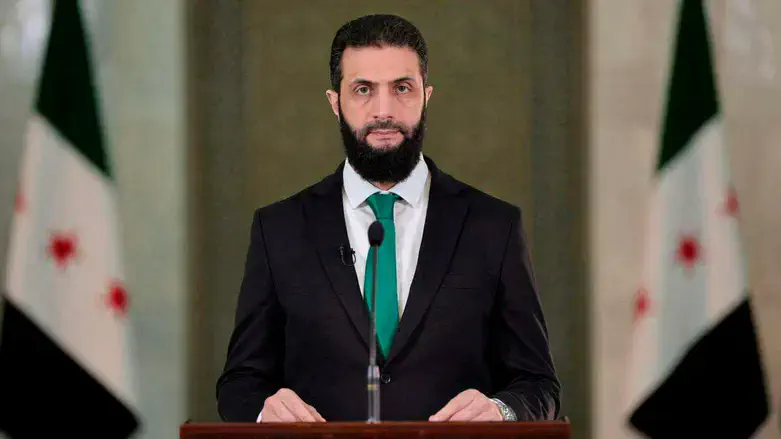
Syria’s interim government announced Monday that it had reached an agreement with the leadership of the Kurdish-dominated Syrian Democratic Forces (SDF) to incorporate the institutions of the autonomous Kurdish administration in the northeast into the national government, AFP reported.
The deal marks a significant step in the efforts of Syria’s new rulers, led by interim President Ahmed al-Sharaa, to consolidate power following the ousting of longtime leader Bashar Al-Assad in December.
A statement published by the Syrian presidency and signed by both parties outlined the terms of the deal, which includes “the integration of all the civilian and military institutions of the northeast of Syria within the administration of the Syrian state, including border posts, the airport, and the oil and gas fields.”
State media released an image of Sharaa shaking hands with SDF commander Mazloum Abdi after the signing.
The statement reaffirmed that “the Kurdish community is an essential component of the Syrian state,” emphasizing that Syria “guarantees its right to citizenship and all of its constitutional rights.” It also denounced “calls for division, hate speech and attempts to sow discord” among Syria’s diverse population.
The SDF, which functions as the military force of the de facto Kurdish administration in northern and eastern Syria, did not immediately respond to a request for comment. The region under SDF control includes much of Syria’s oil and gas reserves—resources that could prove vital for the new government’s reconstruction efforts.
The agreement further commits both sides to “supporting the Syrian state in its fight against Assad’s remnants and all threats to (the country’s) security and unity.”
The Kurds, long oppressed under Assad’s rule, were barred from speaking their language, celebrating their cultural traditions, and were often denied Syrian citizenship. When civil war erupted in 2011, Kurdish forces capitalized on the government’s retreat to establish a semi-autonomous administration in the north and northeast.
Since Assad’s overthrow, Kurdish leaders have signaled a willingness to engage with the new authorities, though they were excluded from a recent national dialogue conference due to their refusal to disarm.
The agreement, expected to be fully implemented by the end of the year, follows a wave of violence in Syria’s Alawite heartland, the most severe challenge to stability since Assad’s removal.
According to the Syrian Observatory for Human Rights, at least 830 Alawite civilians had been executed as of Sunday by security forces or pro-government fighters in the coastal provinces of Latakia and Tartus since fighting in the area erupted this past Thursday.
The Syrian Observatory also reported that fighting has also claimed the lives of 231 security personnel and 250 pro-Assad fighters, bringing the total death toll to 1,311.
On Sunday, Syria’s interim government announced that it would open an investigation into the deaths of the Alawite civilians.
